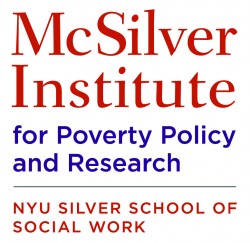The school-to-prison pipeline, a national trend in which public school children are channeled from educational settings into the criminal justice system, has received increased attention in recent years—especially as a result of the Black Lives Matter campaign. This phenomenon is heavily influenced by school disciplinary policies that disproportionately affect children of color and those with learning disabilities and/or histories of abuse, particularly zero-tolerance policies; excessive use of suspension and expulsion; and the presence of police in schools.
According to 2014 U.S. Department of Education Office of Civil Rights data, Black students are more likely than others to be suspended, expelled, referred to law enforcement, and subjected to school-related arrest. In addition, students with disabilities are more than twice as likely to receive an out-of-school suspension when compared to their peers without disabilities. And while boys make up two-thirds of all suspended children, black girls are disproportionately subjected to suspensions and harsher school discipline in general.
 The phrase “school-to-prison pipeline” is not an overstatement. For example, a study by the Council of State Governments Justice Center found that students who are suspended or expelled from school for a discretionary violation are almost three times more likely to become involved with the juvenile justice system. In the summer of 2011, the U.S. Departments of Education and Justice announced the Supportive School Discipline Initiative, a project designed to foster the use of discipline practices that keep children in school while contributing to a safe and supportive learning environment. The initiative combines investment in research, awareness- and leadership-building; development of best practices; funding for specific interventions; and a set of supportive discipline guidelines for states, districts, and schools. However in the years following its implementation, critics have argued the initiative is limited by a failure to address the root causes of discriminatory discipline in schools and consequent funneling into the criminal justice system.
The phrase “school-to-prison pipeline” is not an overstatement. For example, a study by the Council of State Governments Justice Center found that students who are suspended or expelled from school for a discretionary violation are almost three times more likely to become involved with the juvenile justice system. In the summer of 2011, the U.S. Departments of Education and Justice announced the Supportive School Discipline Initiative, a project designed to foster the use of discipline practices that keep children in school while contributing to a safe and supportive learning environment. The initiative combines investment in research, awareness- and leadership-building; development of best practices; funding for specific interventions; and a set of supportive discipline guidelines for states, districts, and schools. However in the years following its implementation, critics have argued the initiative is limited by a failure to address the root causes of discriminatory discipline in schools and consequent funneling into the criminal justice system.
School discipline has also been a hot button issue on the local level. Under the Bloomberg administration, New York City public schools began to mete out harsher punishments for smaller infractions, in keeping with the theory of “broken windows” policing. New York City saw a drastic rise in suspensions from 28,449 during the 2001-2002 school year to 69,643 during the 2011-2012 school year. Though the number of annual suspensions has since declined, there were still nearly twice as many suspensions during the 2012-2013 academic year as there were in 2001-2002. Mayor Bill de Blasio’s administration recently announced a revision of the school discipline code that will shift the focus from punitive measures to more supportive practices like restorative justice.
Direct Service Implications
In January 2014, the U.S. Department of Education released a report outlining three guiding principles for improving school climate and discipline: 1) Create positive climates and focus on prevention; (2) Develop clear, appropriate, and consistent expectations and consequences to address disruptive student behaviors; and (3) Ensure fairness, equity, and continuous improvement. Suggested action steps toward achieving these principles emphasize collaborative creation of discipline codes and improved communication between schools, families, and other institutions that frequently come into contact with school-aged youth. As strength-based mental health professionals, social workers will play a significant role in helping schools to implement prevention and discipline strategies that are conducive to positive social emotional growth. Additionally, social workers in the child welfare and juvenile justice systems can view this as an opportunity to increase collaboration with schools in order to better support youth.
Research and writing contributed by Katie Hahn, MSW Student, NYU Silver School of Social Work
Courtesy of McSilver Institute of Poverty Policy and Research who has kindly given SJS permission to syndicate this piece.
Disclaimer: The views and opinions expressed in the Policy News Briefs are not necessarily the views of the McSilver Institute for Poverty Policy and Research or NYU’s Silver School of Social Work. If you have comments or suggestions about this service, contact us at info@mcsilver.org.
Our authors want to hear from you! Click to leave a comment
Related Posts



